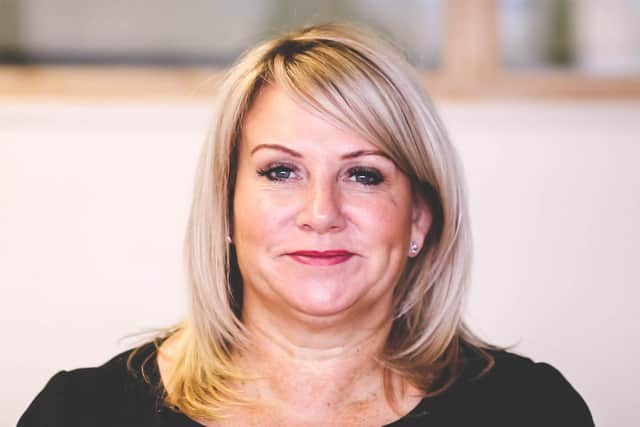'Unsung hero' carers in Wakefield set for 59p-an-hour pay rise as health chiefs try to address staffing crisis


Every carer in the district is being given 59p-an-hour on top of their current wage, equating to a near £100-a-month extra for someone who works a 40 hour week.
The cash is coming from a £12m pot that will be distributed across West Yorkshire, the money having been scraped together by the region's NHS organisations.
Advertisement
Hide AdAdvertisement
Hide AdJo Webster, chief of Wakefield Clinical Commissioning Group (CCG), said the cash would ensure all carers will be paid above the living wage in Wakefield.


It's hoped it will help aid recruitment and retention of current staff.
Ms Webster said: "These changes we’re making demonstrate not only that we recognise the value of our workforce, who are providing excellent care to our residents in Wakefield, but we’re also recognising the challenges these people face in their family lives.
"This will help them pay for things such as childcare, parking and travel, which are things they've had to fund themselves for a long time.
Advertisement
Hide AdAdvertisement
Hide Ad"We’re constantly up against sectors such as retail, because they offer more pay (than the care sector) and they offer lots of incentives at this time of year.
"We’re up against that challenge all the time.
"This is a big step forward for us and we want to recognise the fact our care workers play such a significant part in people’s lives."
The pay rise applies to both homecare workers and staff in residential homes.
Ms Webster said the money would be given to providers, who would be contractually obliged to pass it onto staff.
Advertisement
Hide AdAdvertisement
Hide AdIt is in addition to any pay rise their employers may give them at the start of the new financial year in April.
The leader of Wakefield Council, Denise Jeffery, said: "We want to acknowledge the enormous work and care these people do. We need to keep them working with us.
"Who knows what we’re going to face over the next three months? We need all our care workers with us and on board.
"They are unsung heroes. They look after so many people and do so much and it all goes unnoticed.
"We wanted to recognise that.
Advertisement
Hide AdAdvertisement
Hide Ad"But we need to start recruiting and retaining the people we’ve got and making them feel like it’s a worthwhile career."
The local authority says that Brexit has hit staffing levels, with many carers from the EU having returned to their country of origin.
Recruitment fairs and a link-up with Wakefield College are being used to promote careers in social care in a bid to boost numbers in the long-term.
The government announced a hike in National Insurance payments earlier this year to help fund social care.
However, the rise does not kick in until April.
Advertisement
Hide AdAdvertisement
Hide AdCoun Jeffery confirmed the social care precept, which is added onto council tax bills, will have to remain for the foreseeable future and called for government to plough more funds into the sector urgently.
She said: "It’s so essential that we look after people.
"It’s about time the government paid for social care, instead of expecting councils to pay for it.
"Our budgets are strapped but we’ll have to keep putting the money in until we get a better situation from the government."
Councils have to subsidise the social care costs of anyone with savings and assets that add up to less than £23,250.
Advertisement
Hide AdAdvertisement
Hide AdMore than half of all council tax receipts go towards paying for this, and with an ageing population, the financial burden of funding social care is set to increase significantly over the coming decades.
Local Democracy Reporting Service
Comment Guidelines
National World encourages reader discussion on our stories. User feedback, insights and back-and-forth exchanges add a rich layer of context to reporting. Please review our Community Guidelines before commenting.